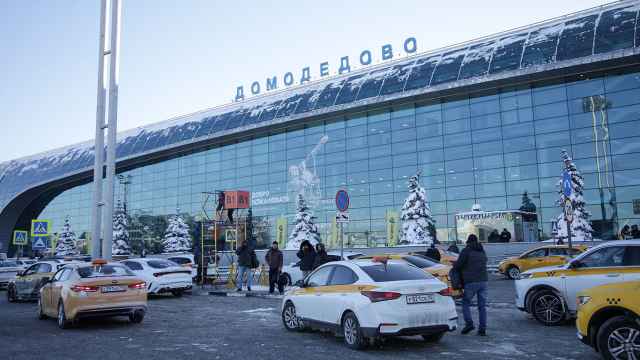In recent days, President Dmitry Medvedev has moved against some of the most powerful men in the government, including Deputy Prime Minister Igor Sechin, who is perhaps the closest figure to Prime Minister Vladimir Putin — and who until Monday was chairman of Rosneft, Russia’s largest oil firm. Medvedev recently signed a decree to strip Sechin and others of their chairmanships of some of Russia’s biggest state-owned companies. The stated purpose of the decree was to improve the country’s investment climate, but the purge may reflect other, more important goals.
Medvedev has in the past recognized both the need to attract Russian and foreign investment and the country’s dismal investment climate. But this time, his actions truly matched his rhetoric as he outlined specific measures to be taken and set deadlines for implementing them. And with some of the measures bound to face stiff opposition by powerful interest groups, the reforms are set to be a major test of Medvedev’s real strength — and of his plans to run for another term as president. Even partial success would allow a Medvedev re-election campaign to be built around themes of anti-corruption and transparency.
Corruption and government accountability are probably the single most important issues for Medvedev’s electoral base among the country’s rising middle class and “protest voters.” United Russia’s recent poor performance in regional elections shows that the electorate is fed up with the status quo and is ready to vote for an alternative.
The success of leading anti-corruption activist Alexei Navalny is another wake-up call for Medvedev. Notably, many of the measures proposed by the president are similar to those recommended by Navalny: removing government officials from the boards of state-owned companies, ensuring access to corporate documents for minority shareholders and developing a way to respond to whistleblowers on corruption.
Medvedev made a simple and convincing argument: Those who fear transparency are those who have something to hide. This is not an abstract accusation. Navalny’s repeated requests for the minutes of several state-owned companies’ board meetings generated huge resistance. Two companies even tried, unsuccessfully, to change the law to reject shareholder requests for information.
The most controversial of Medvedev’s measures is the removal of key bureaucrats from corporate boards. His orders list 17 state-owned companies and the powerful ministers and deputy prime ministers to be removed from board chairmanships by July 1. He promised a longer list by Oct. 1.
The president’s logic is straightforward: A government official in charge of an oil company or a bank faces an inherent conflict of interest. The chairman of a board must serve the interests of the company, but a government official must pursue public interest, which includes preserving a competitive environment in the oil or banking sector.
Removing officials from state-owned companies’ boards has been an important aim for Medvedev for several years. He introduced the idea in his presidential campaign speech in Krasnoyarsk in 2008 and has made certain that dozens of independent directors have been appointed to state-owned companies’ boards.
Yet board chairmanships remained the domain of the bureaucracy. Not a single state-owned company has an independent chairman. And the chairmanship is a vital position, as its occupant sets the agenda and controls discussions.
It is difficult to talk about standards of corporate governance in Russia’s state-owned companies since most do not even have regularly scheduled board meetings, owing to the unpredictability of government officials’ schedules. This may seem little more than an annoyance, but it has a key implication: When there is no regular schedule for board meetings, many independent directors — especially foreigners — often cannot attend. If the board chairman is not a government official and can commit to an annual schedule, highly skilled independent directors from around the world could be attracted.
As usual with such initiatives, implementation matters. First, it is not clear who will replace the bureaucrats as board chairs. Given their importance, the new chairs must have the necessary skills and integrity. It is often said that Medvedev does not have his own team, but his appointees to these positions will show whether that is true.
Second, it is uncertain whether the new board chairs will actually run the companies. Russia’s legal system is imperfect, and even serious violations of corporate governance are difficult to punish. It is not unthinkable that management will simply ignore the boards.
Finally, while some board members are truly independent, others receive “directives” from the government on certain issues. Therefore, it matters whether the new board chairs run their boards independently or according to the Kremlin’s orders. In the latter case, the new — and quite expensive — chairs would be treated as government proxies, making a mockery of the entire exercise. The good news is that Medvedev’s chief economic adviser, Arkady Dvorkovich, has said government directives “will be reformed” as well.
Whether these improvements in corporate governance are actually implemented will be clear to all. We will know soon — certainly before July 1 — whether Medvedev can implement even a part of his agenda and whether he is willing and able to build his own power base in the process.
Sergei Guriev is rector of the New Economic School in Moscow. Aleh Tsyvinski is professor of economics at Yale University. © Project Syndicate
A Message from The Moscow Times:
Dear readers,
We are facing unprecedented challenges. Russia's Prosecutor General's Office has designated The Moscow Times as an "undesirable" organization, criminalizing our work and putting our staff at risk of prosecution. This follows our earlier unjust labeling as a "foreign agent."
These actions are direct attempts to silence independent journalism in Russia. The authorities claim our work "discredits the decisions of the Russian leadership." We see things differently: we strive to provide accurate, unbiased reporting on Russia.
We, the journalists of The Moscow Times, refuse to be silenced. But to continue our work, we need your help.
Your support, no matter how small, makes a world of difference. If you can, please support us monthly starting from just $2. It's quick to set up, and every contribution makes a significant impact.
By supporting The Moscow Times, you're defending open, independent journalism in the face of repression. Thank you for standing with us.
Remind me later.






